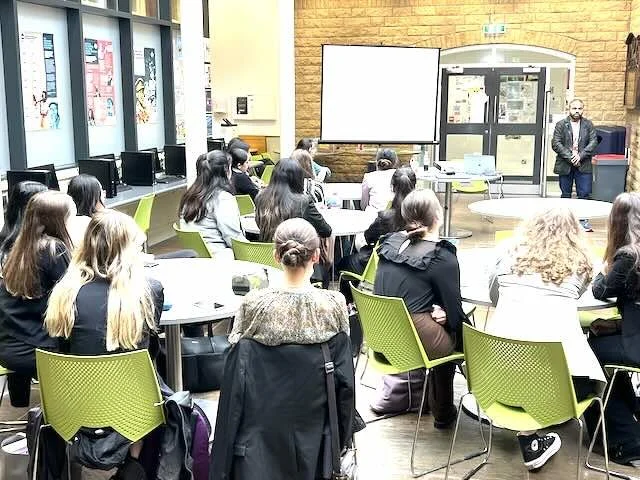The Limitations of UCAT Question Banks for Effective Revision: Why They Shouldn’t Be Your Sole Study Tool
Many students will start revising for the UCAT exam, typically held over the summer in the UK. This examination is essential for entry into most medical and dental schools in the UK. A higher score in the exam opens the ability to apply to more medical schools, especially those based in more popular and established universities. Many students will start their revision by going through past questions. This blog discusses why this is not a smart approach to this exam.
In the fast-paced world of medical academia, where exams and assessments loom large, students are constantly seeking efficient and effective ways to prepare. Among the plethora of study aids available, question banks have emerged as a popular choice for revision, particularly for the UCAT exam. These repositories of practice questions offer the promise of targeted review, allowing students to hone in on specific topics and gauge their understanding, often giving the student performance benchmarks compared to other students. However, while question banks undeniably have their merits, relying solely on them for revision can be risky. Remember, question banks are a method of assessment and not learning. In this blog, we delve deeper into the limitations of UCAT question banks and why a more diversified approach to revision is essential for success.
Lack of Comprehensive Understanding of the sections of the UCAT exam
By their very nature, question banks tend to focus on discrete topics or concepts. While this can be advantageous for targeted review, it often comes at the expense of a broader understanding of the subject matter. The UCAT exam requires the student to learn strategy and understand how the questions are set in the mind of the examiners. In this way, the student can answer questions accurately and more quickly.
Simply answering isolated questions does little to foster connections between ideas or provide the context necessary for true comprehension. Without a solid foundation of understanding of the sections of the UCAT exam, students may find themselves ill-equipped to tackle more complex questions or apply their knowledge in real-world scenarios, such as situational judgment.
To address this limitation, students should complement their use of question banks with more comprehensive study materials, such as textbooks and online resources, such as those provided by the UCAT consortium. Engaging with these resources allows for a deeper exploration of key concepts in each section of the UCAT exam, helping build a more robust understanding of the subject. However, our review of the resources provided by the UCAT consortium would indicate the question banks they provide are useful. However, although the UCAT consortium’s official learning resources have improved slowly over the years, they are still inadequate if used in isolation.
👉🏼 Students must learn how to approach the UCAT exam and learn strategies to answer each section. This should be done before question banks are used or mock examinations are attempted
Limited Engagement with Content With Students who focus on UCAT questions
Effective learning is an active process that requires engagement and participation. While question banks provide practice opportunities, they often fall short of stimulating genuine intellectual engagement. In other words, it is better to discuss questions and answers with peers, learning where things went wrong and how to put things right. Merely memorising answers to questions from UCAT question banks does little to encourage critical thinking or problem-solving skills, which the student will need in the actual UCAT exam. Furthermore, the repetitive nature of answering similar questions can quickly lead to boredom and disengagement.
Students should seek interactive study methods that promote active learning to counteract this tendency. These could include group discussions, hands-on activities, or even creating their own practice questions. By actively engaging with the material, students can deepen their understanding and retention of key concepts. However, in our experience, students are reluctant to engage with other students due to the competitive nature of this exam, and we have encountered students withholding knowledge from the group and expressing inaccurate pessimism.
👉🏼 Students should prepare for this exam by engaging with other students, and preferably a tutor or teacher who is experienced in providing tuition for the UCAT exam. Bear in mind students who refuse to engage.
COME TO OUR LIVE IN PERSON UCAT COURSE
The live in-person UCAT course is taught by Dr Abdul Mannan, fully qualified NHS doctor and medical school tutor. 🥇
The UCAT can be overwhelming, but it does not have to be! You need to learn before you sit this exam. Develop your revision technique and an intelligent approach. It’s not just about doing questions - every student does questions! 😀
We partner with our friends at Medify, giving you access to 20,000+ questions, 24 mocks and 40+ mini mocks, plus over 50 hours of Medify video tutorials. Dr Mannan’s video tutorials are also included, giving you everything you need to prepare for this exam. 💾
For 2025 entry, we are running our course in person in Manchester, England, or you can join the class remotely from home using Zoom/Teams. 💻
Dr Abdul Mannan teaches our UCAT courses in person. We expect students to engage with each other and the tutor.
We are trusted to teach at several top schools in the UK, including the outstanding Clitheroe Royal Grammar School, where we teach our Medical School Interview Course.
False Sense of Security if students rely on UCAT question banks in isolation
Scoring well on UCAT practice questions can temporarily boost confidence, leading students to believe they are adequately prepared for the exam. However, success in a controlled practice environment does not always translate to success in the high-pressure setting of an actual exam. Furthermore, question banks may inadvertently reinforce a narrow focus on topics well-covered in the practice material while neglecting areas less heavily represented.
To avoid this trap, students should regularly assess their progress using various assessment methods, including timed practice exams, self-assessment quizzes, and peer feedback. This allows for a more balanced evaluation of strengths and weaknesses, helping to identify areas needing further review. To this extent, we advise students to use at least three UCAT question bank sources. The UCAT consortium is one, a second can be a UCAT textbook, and the third can be provided as part of a UCAT course.
👉🏼 Do not rely on one question bank for the UCAT exam. Scoring highly may give you a false sense of security. Ensure that question banks and textbooks are up to date.
Neglect of Active Learning Strategies for the UCAT exam
Effective revision involves more than passively reviewing information; it requires active engagement with the material. While question banks can be useful tools for targeted practice, they do little to encourage the kind of deep learning that comes from actively summarising, synthesising, and applying knowledge that you will need to acquire for the UCAT exam. Students focusing solely on answering questions miss opportunities to develop higher-order thinking skills such as analysis, evaluation, and creativity.
To incorporate more active learning strategies into their revision routine, students should experiment with concept mapping, teaching others, and self-explanation. These methods encourage deeper information processing and help solidify understanding in a way passive review cannot.
Conclusion to why students should not rely solely on question banks for the UCAT exam
Question banks can be a valuable resource for revision for the UCAT exam, providing opportunities for targeted practice and assessment. However, they should not be relied upon as the sole study tool.
To truly master the UCAT exam, students must adopt a more diversified approach to revision, incorporating various study methods and resources.
Students can maximise their chances of success in the UCAT exam and beyond by actively engaging with the material, seeking feedback and guidance, and supplementing practice questions with more comprehensive study materials.








